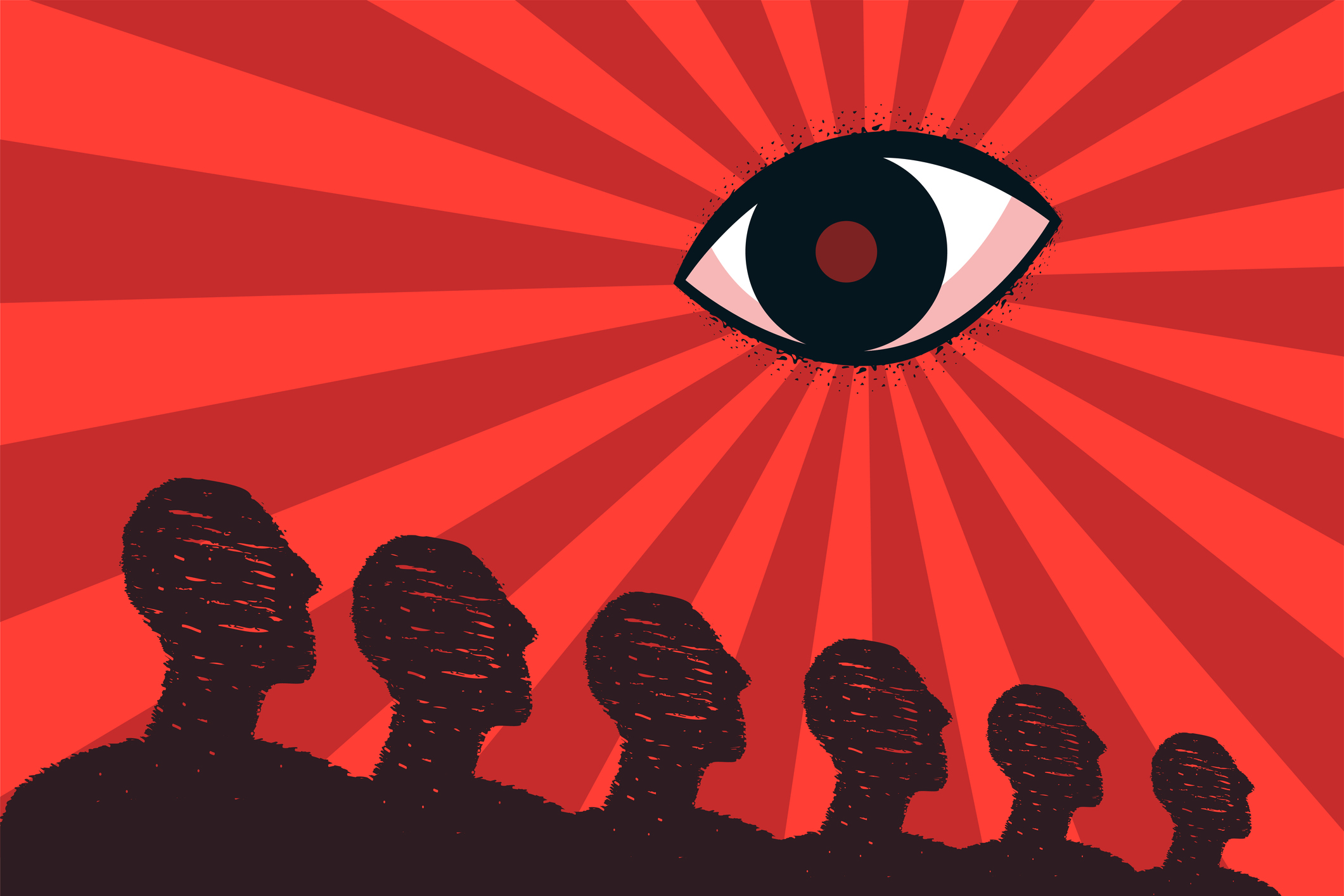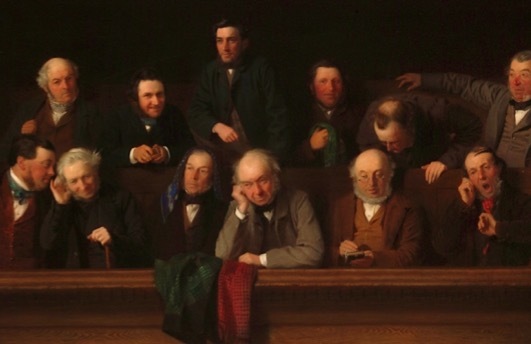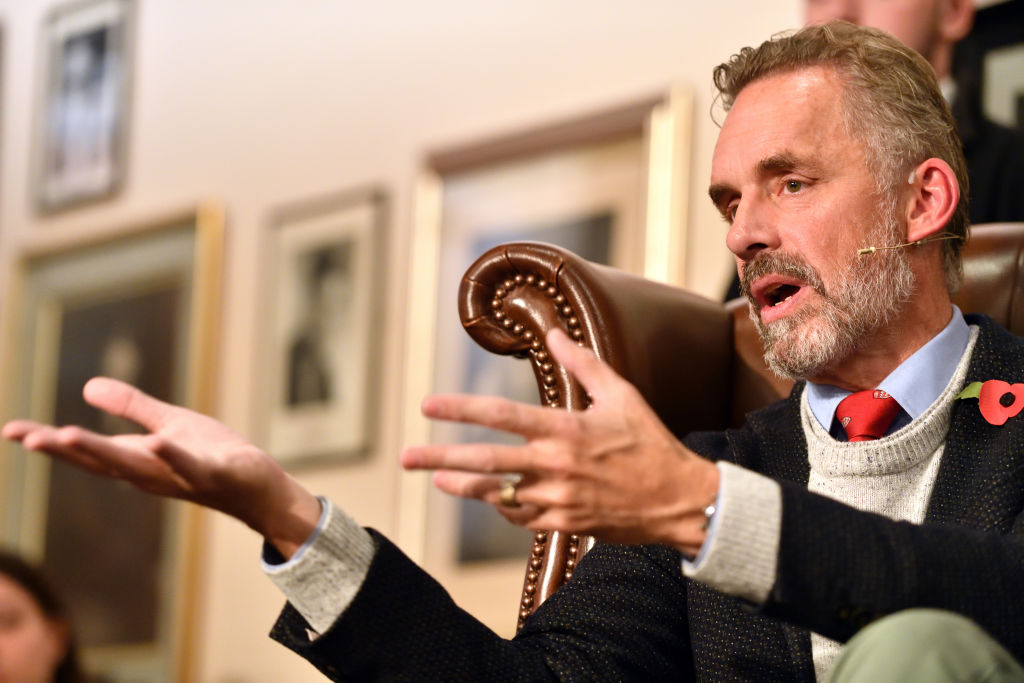It’s time to bet on humanity—before things get worse.
Truth and Politics

How radical relativism leads to ideological fanaticism.
This essay was originally delivered as a speech to the Fellowship of Catholic Scholars at the Catholic University of America.
In our era, truth is under systematic assault from moralistic fanatics who are at the same time thoroughgoing relativists and dyed-in-the wool subjectivists. The Catholic journalist Karlo Broussard put it well in his recently published booklet, The New Relativism: “The fight against relativism is not over. The agents of relativism are still out there, seeking to fit the world to their own desires and likes rather than discover and understand the world in order to better conform to it. And they do it under the guise of ‘woke’ absolutes, which on face value seem true and good, but in reality mean the opposite of what an unsuspecting person might think.” The fervid intensity of the woke absolutists, their endless anger and excoriation, should not be mistaken for a commitment to truth and truth-seeking. Their indignation, their aim to “cancel”—to morally obliterate—those they cannot abide is a consequence of the fact that they have left the world of objective truth and measured moral judgment behind.
At the same time, these vehement enemies of Truth with a capital T do not hesitate to accuse their opponents of departing from the only acceptable narratives regarding ubiquitous white racism, the self-evidence of gender theory, the grave threat to democracy posed by conservative populists and moral traditionalists, and the unquestionable need to genuflect before the authority of “Science” as redefined by politically correct elites. Their censorious appeal to truth is thus at the service of intellectual and political authoritarianism (itself at the service of sexual and sociopolitical liberationism). These self-evident goods justify all efforts to silence those who still affirm that “freedom is ordered to the truth and is fulfilled in man’s quest for truth and in man’s living in the truth,” as Pope St. John Paul II put it in his address to the United Nations General Assembly on October 5, 1995. Paradoxically, the moralistic indignation shared by totalitarians in the 20th century and woke fanatics in the 21st is primarily directed against those who, in John Paul II’s words, still uphold “the moral structure of freedom,” or what Pope Benedict XVI called the “moral ecology” rooted in conscience and truth that alone can give form and life to human liberty.
Ideological fanaticism is the inevitable consequence of a nihilistic denial of an order of things, of a natural moral order available to human beings through reason and experience. The willful denials of truth and falsehood, good and evil, virtue and vice, understood as fundamental distinctions rooted in the structure of reality, inevitably leads to a comprehensive subversion of all the goods of human life: of liberty, the life of the mind, sound politics, and moral judgment. Human beings are moral as well as political animals, and the denial of these basic truths does not abolish moral phenomena as much as distort them, or cause them to live a diminished and zombie-like existence. In what follows, with the help of the 20th-century Anglo-Hungarian political philosopher and philosopher of science Michael Polanyi, I aim to highlight the “moral inversion” common to modern totalitarianism and the postmodern nihilism from which woke activism is almost wholly derivative. Such moral inversion is defined by a mix of “official” relativism and fanatical moral indignation, rooted in the ideological rejection of a natural order of things, and of a shared public or common world, where our manifold responsibilities and duties first come to sight.
Radical Liberals and Illiberal Radicals
Polanyi develops a deeply illuminating description and dissection of nihilistic “moral inversion” in his 1958 masterwork Personal Knowledge: Towards a Post-Critical Theory, a work that aimed to recover an ontologically and morally realist account of scientific inquiry and moral judgment freed from the limits of positivism and open to the various forms of “tacit knowing” available to thinking and acting man. His clearest and fullest account of the link between moral nihilism and ideological fanaticism, however, is found in a chapter entitled “Perils of Inconsistency” in an earlier book entitled The Logic of Liberty, first published by the University of Chicago Press in 1951. This chapter amply rewards close examination.
To begin with, Polanyi is particularly sensitive to the tensions, or even contradictions, at the heart of liberal theory and practice. Some early modern liberals such as John Milton in his Areopagitica saw political, intellectual, and religious liberty as crucial preconditions for attaining truth. But early modern liberalism, or proto-liberalism, was haunted by “philosophical doubt,” since it was first and foremost motivated by a “detestation for religious fanaticism” of the kind that had led to the wars of religion. The theoretical radicalism, and underlying anti-religious ire, of such liberalism was for a long time muted in the Anglo-American world, as liberal constitutionalism in England and America aimed primarily to pacify religious contestation without affirming radical moral skepticism or upholding a civically corrosive neutrality between belief and unbelief. Even Locke refused toleration to atheists since they were, in Polanyi’s words, “socially unreliable.” Locke’s epistemic skepticism was, of course, acidic enough. It contributed to the nihilistic skepticism of the French encyclopedists, as Father John Courtney Murray rightly argues in his 1960 classic We Hold These Truths (Pierre Manent makes the same case in his 1994 book The City of Man). But for a very long time “the consummation” of this deep tension within liberalism was, in Polanyi’s words, held at bay “in the Anglo-American region by an instinctive reluctance to pursue the accepted philosophical premises to their ultimate conclusions.” Similarly, utilitarian philosophy was a thin and arid substitute for true moral judgment. But utilitarians and philosophical empiricists nonetheless pretended that their hedonic premises gave support to ethical behavior as wise “maxims of prudence.” This was, to be sure, spiritually thin gruel. But it was not yet politically corrosive, at least in any obvious or immediate sense.
Things took a different turn in continental Europe. There, liberalism quickly morphed into full-fledged radical skepticism as well a penchant for revolutionary politics. The French Revolution revealed a fanaticism all its own, inspired by the hedonism and skepticism of the philosophes, the scientism and anti-religious fury that were hallmarks of the continental Enlightenment, and by a “literary politics,” as Alexis de Tocqueville phrased it, that aimed to design a wholly new political order from scratch, as if one were writing a play with a preordained happy ending. “Be my brother or I will kill you!” one prominent French aristocrat-turned-revolutionary proclaimed. The French Revolution may have given way to Napoleonic despotism, but revolutionary impatience would only grow in fury in its aftermath.
Realism Against the Real
Polanyi expertly exposes the Achilles’s heel of European rationalism. In its disdain for priests and the Catholic religion, it took aim at everything that was allegedly unscientific, indemonstrable, and uncertain, including traditional morality. This was its salto mortale. To be sure, ethical principles are by no means arbitrary since, as persons, we know them through “participation” and lived experience. We can describe and evaluate virtues and vices in perfectly reasonable ways, as Aristotle and St. Thomas so convincingly demonstrated. In addition, conscience, as described by St. John Henry Newman, gives us access “to the rule of our conduct” and to “the standard of right and wrong” which commands obedience. For Newman, conscience additionally provided powerful evidence for the existence of God. It is indeed a ”stern monitor” and should not be confused with subjectivism or “the right of self-will.” At the same time, as Polanyi suggests, our very real “obligations(s) to tell the truth, to uphold justice and mercy,” cannot be proved or demonstrated in a way that would satisfy the scientism of modern rationalists. A truncated Reason, irrationally but ardently affirmed, thus quickly becomes an enemy of the Real.
With the Marxism of Marx, the dialectic of skepticism and fanaticism begins to unleash its full fury. For Marx, the moral “superstructure” of society always and everywhere provides a groundless and hypocritical justification for class dominance and exploitation. In the second part of The Communist Manifesto Marx crudely mocks natural right or justice, along with any appeal, political, philosophical or theological, to “eternal truths, such as Freedom, Justice, etc.” In pre-revolutionary Russia, Marx’s pseudo-scientific socialism vied for attention with other subversive doctrines such as revolutionary populism and the overt and deadly nihilism so powerfully described by both Turgenev and Dostoevsky. In that milieu, the urge to negate and destroy took on the form of limitless moral passion, but one tied to philosophical and historical materialism, a materialism that has no place for authentic moral judgment, or for salutary self-restraint. European revolutionaries such as the Bolsheviks and the Russian nihilists thus combined a sense of passionate righteousness with what Polanyi called “scientific self-assurance” and an “impenetrable skepticism.”
We have now arrived at moral inversion proper. With ideological despotism and its myriad practitioners and apologists, “the moral needs of man, which are denied expression in terms of human ideals, are injected into a system of naked power, to which they impart the force of blind moral passion.” The morally inverted, the ideologically fanatical, combine deep moral skepticism with the justification of the truly unjustifiable such as revolutionary terror and unprecedented forms of tyranny. Moral inversion is one manifestation of what Aleksandr Solzhenitsyn called the “ideological Lie.” Authentic moral aims are replaced by thoroughly ideological ones. The ideologue (and fellow-travelling intellectuals) act with “the whole force of his homeless moral passions within a purely materialistic framework of purposes.” A political, or rather, ideological order built on these mendacious claims destroys the moral integrity of those who succumb to it. It also makes genuine intellectual freedom impossible. When moral passions go completely underground and escape the tribunal of reasonable moral judgment, morality is transmogrified into moral destruction pure and simple. It reveals itself as pure nothingness. Reductive materialism, united with moralistic indignation and the messianic ideologies which aim to transform radically human nature and the only human condition we have known, can only deform reality and mutilate the bodies and souls of human beings.
The Devil’s Work
Let us turn to events closer to home. Even a cursory examination of contemporary intellectual life shows that the spirit of negation is alive among us, this time in the form of postmodern nihilism and its derivative, woke activism. In Roger Scruton’s words, the new antinomians such as Michel Foucault could find in “social discourse” only “the voice of power.” La pensée de soixante-huit (“the thought of 1968”), as the French called it, could see in legitimate authority only authoritarianism, and of the most pernicious sort. What unhinged judgment they exhibited. In the age of ideological totalitarianism, of an unprecedently cruel tyranny, they saw the greatest and gravest of evils in “bourgeois domination.” As an “anatomist of power and the priest of liberation,” Foucault and his epigoni, who quickly rose to the forefront in Western intellectual life, identified liberation or emancipation with cultural and political repudiation. This was the farthest thing from the affirmations of John Paul II I cited above.
This tumultuous revolt against decency, restraint, and humanizing authority has largely been “socialized” and institutionalized in our universities, cultural institutions, and newspaper boardrooms, as both Pierre Manent and Christopher Rufo have argued. A culture of civilizational self-loathing reigns supreme, or almost so. By denying that authority can be exercised in humane, generous, and reciprocal ways, today’s antinomians and woke activists see power, used coercively, as the only way to “emancipate” victims (blacks, transsexuals, women, and the dispossessed) from the “domination” that is coextensive with bourgeois society. They see victims everywhere, and they adamantly reject moral agency and mutual accountability as ways of promoting non-utopian justice and amicable civic bonds. Woke despotism is thus the latest form of totalitarian moral inversion, nearly identical in structure and form to the earlier hybrids of nihilism and fanaticism that Polanyi described.
For his part, Scruton saw a Satanic impulse at work in these complementary projects of cultural, political, and spiritual negation. As he writes in his book An Intelligent Person’s Guide to Modern Culture, first published in 2000, those who relentlessly attempt to negate and repudiate our precious moral, cultural, and civilizational inheritances are doing “the Devil’s work.” Scruton liked to remind his readers of Goethe’s unnerving but altogether compelling description of Mephistopheles in his masterpiece Faust: “The spirit that forever negates! And rightly so: since everything created, In turn deserves to be annihilated.” There in a nutshell is the “effectual truth” of the unrelenting postmodern project of cultural and spiritual deconstruction.
Writing in 1951, Polanyi hoped against hope that the liberal order could escape this deadly mix of debilitating doubt and moral inversion by coming to terms with an older wisdom, including the wisdom of the Catholic Church. Confronted by totalitarianism, he believed true liberals are those “who recognize transcendental obligations and are resolved to preserve a society built on the belief that such obligations are real.” In doing so, they would discover the sobering truth “that they stand much closer to believers in the Bible and in the Christian revelation, than to the nihilist regimes, based on radical disbelief.”
Nothing has transpired since 1951 to invalidate Polanyi’s intuitions and arguments, and developments closer to home confirm the urgent need for a high-minded reconciliation between modern liberty and Christianity. But, alas, the kind of conservative liberalism that Polanyi so ardently hoped for is on life support.
And the Christian churches, even the Roman Catholic Church, are fast succumbing to the temptation to genuflect before the zeitgeist rather than renewing the “moral structure of freedom” so nobly and truthfully articulated by Pope John Paul II at the United Nations in October 1995. Some even evoke a new “age of the Spirit” where unchanging truth and the moral law give way to spurious theological enthusiasms. But the old verities persist, and they must be artfully articulated and vigorously defended in this age as in any other.
The American Mind presents a range of perspectives. Views are writers’ own and do not necessarily represent those of The Claremont Institute.
The American Mind is a publication of the Claremont Institute, a non-profit 501(c)(3) organization, dedicated to restoring the principles of the American Founding to their rightful, preeminent authority in our national life. Interested in supporting our work? Gifts to the Claremont Institute are tax-deductible.
A little less conversation, a little more action.
Unadulterated liberalism is creating a nation of unhappy scolds.
A new political vocabulary is needed for a world itself quite new.
Feel-good platitudes aren’t enough to sustain a healthy society.
The apostle of precision hems and jaws about his religious belief.






